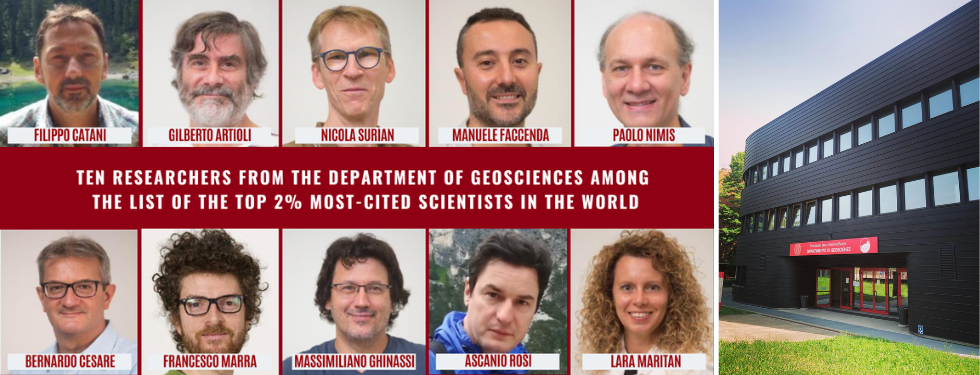The Department of Geosciences shines in the ranking of the world's most influential scientists

Ten researchers from the Department of Geosciences at the University of Padua among the most cited worldwide in 2024, according to the new edition of the database compiled by Stanford University in partnership with Elsevier
This recognition comes from the "Updated science-wide author databases of standardized citation indicators", compiled annually by a team of analysts from Stanford University in partnership with Elsevier. This database, based on Scopus data updated to August 1, 2025, is considered the most authoritative bibliometric reference globally.
The 2024 list of top-cited scientists includes the following ten scientists from the Department of Geosciences:
- Filippo Catani
- Gilberto Artioli
- Nicola Surian
- Manuele Faccenda
- Paolo Nimis
- Bernardo Cesare
- Francesco Marra
- Massimiliano Ghinassi
- Ascanio Rosi
- Lara Maritan
Of these, Gilberto Artioli, Nicola Surian, Paolo Nimis, Filippo Catani, Bernardo Cesare, and Lara Maritan also appear in the career-long ranking, demonstrating a lasting impact over time. The Department of Geosciences at the University of Padua has thus further improved on its excellent performance from last year (when there were three faculty members in the career-long ranking), confirming the high quality of research conducted.
How the ranking works
The selection includes the world's top scientists by c-score (a composite indicator that takes into account various factors) and/or those who rank in the top 2% for each scientific field. The ranking considers numerous standardized bibliometric indicators, including:
- Total number of citations
- Citations per paper as first or single authors
- H-index
- Particular attention is paid to self-citations, which are counted separately to assess their impact on overall metrics
This recognition not only confirms the excellence of research conducted at the Department of Geosciences of the University of Padua but also strengthens its position as a center of scientific innovation of global relevance.





